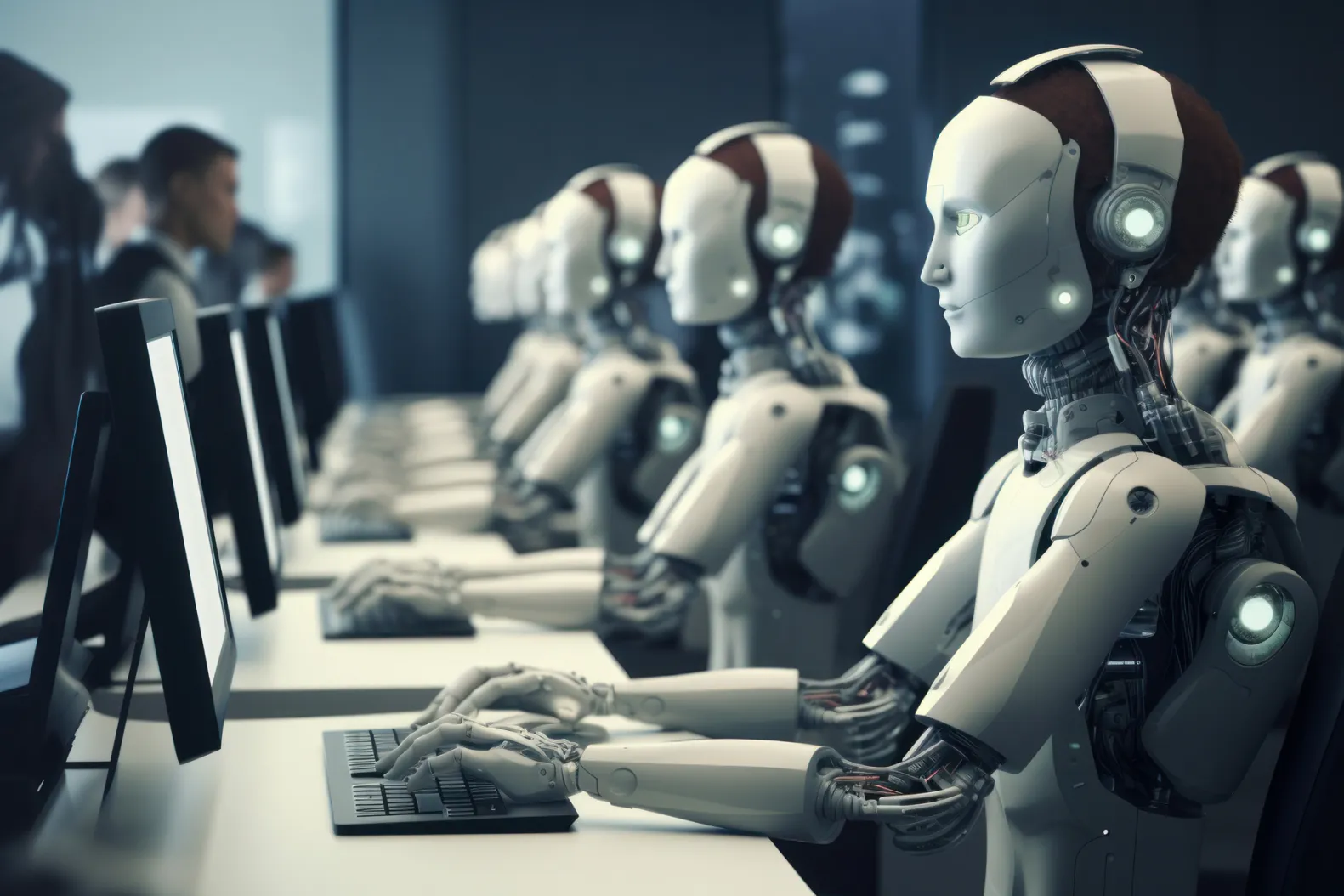Jobs AI will take in the next 5 years
In the next five years, AI is expected to
automate jobs with repetitive, predictable, and data-driven tasks, significantly impacting industries from customer service to law. These roles will not necessarily disappear but will evolve, with AI tools handling routine duties and human workers focusing on more complex, creative, and interpersonal aspects.
Administrative and data-related jobs
These positions, which rely heavily on data processing and organization, are highly susceptible to automation.
- Data entry clerks: AI and optical character recognition (OCR) systems can process and transfer information with greater speed and accuracy, making manual data entry largely obsolete.
- Bookkeepers: AI-powered accounting software is taking over repetitive financial tasks like transaction tracking, ledger management, and basic reporting.
- Receptionists and administrative assistants: Automated check-in systems and virtual assistants can handle tasks such as scheduling, managing communications, and responding to basic queries.
Customer service and sales
AI-powered chatbots and virtual assistants are already transforming customer-facing roles by handling routine inquiries and basic transactions around the clock.
- Basic customer service representatives: Chatbots can manage straightforward requests like checking order status or resetting passwords, allowing human agents to focus on more complex, empathetic problem-solving.
- Telemarketers: AI voice tools can handle scripted cold calls and gather customer data efficiently, reducing the need for human telemarketers.
Legal services
AI excels at processing and organizing vast quantities of data, a core function of many entry-level legal positions.
- Paralegals and legal assistants: AI tools can automate contract review, legal research, and document summarization, freeing up lawyers for more complex legal strategy and client negotiation.
Creative and media roles
Even creative jobs with repetitive elements will see major changes, as AI can assist with ideation and first drafts.
- Entry-level content creators and copywriters: AI content generators can help brainstorm ideas and write formulaic content like marketing emails, displacing some junior roles.
- Proofreaders and editors: AI tools can identify grammar mistakes, correct punctuation, and check for tone inconsistencies, automating many mechanical editing tasks.
- Entry-level graphic designers: For simple, template-based work, AI tools can quickly generate logos and marketing graphics, reducing the need for junior-level designers.
Transport and logistics
The development of autonomous systems will continue to impact roles reliant on manual vehicle operation or repetitive warehouse tasks.
- Warehouse workers: AI-powered robots and automated inventory systems can handle picking, packing, and tracking products more efficiently than human workers.
- Truck and delivery drivers: While the complete automation of this sector is more than five years away, autonomous driving technology will reduce the need for human drivers on long-haul routes.
Financial services
Routine and data-intensive tasks within the finance industry are ripe for AI-driven automation.
- Entry-level financial analysts: AI can process large datasets to analyze market trends and generate basic reports faster than junior analysts.
- Loan officers and underwriters: AI algorithms can evaluate creditworthiness and risks, automating much of the manual underwriting process.
The human-machine collaboration
While some roles are at risk of being fully automated, most will likely evolve into a hybrid model where humans and AI work together. Experts emphasize that the key to career longevity is to develop uniquely human skills that complement AI, such as:
- Creativity
- Emotional intelligence and empathy
- Complex problem-solving
- Strategic thinking and leadership
Instead of replacing entire professions, AI will change what tasks humans and machines perform within them. For instance, doctors who use AI-driven diagnostics will replace those who do not, and paralegals will transition from researchers to legal tech consultants.








Post Comment